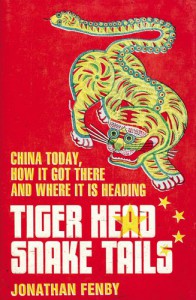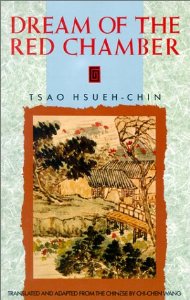
The “China Dream” is a slogan that can be interpreted at multiple levels. Here is one pretty good analysis:
What does Xi Jinping's China Dream mean? (BBC, 5 June 2013)
In my writing and lecturing I like to say that the Chinese leadership is trying to answer “4 basic questions”–
1. How to rule a large country with a large population from a single place
2. How to make China great again
3. If China is to become great again, how to transform the country and
4. How to deal with the outside world.
My short answers:
1. CCP rule, rooted in the ancient “son of heaven” tradition, which, among other things, stresses “right thinking”, power and control as absolute and arbitrary (CCP is an extra-legal organization) and the illegitimacy of opposition (ie., the idea of a loyal opposition does not exist in Chinese political culture).
2. “Great again” – overcoming the legacy of the China's collapse in the 19th century, the chaos of the 20th, the potential rise in the 21st. This is a very complex issue, having to do with nationalism (promoted by the state) and can simply be seen as regaining respect as a great power (particularly a regional power…the old tribute system). “World domination?” I think that's the unrealistic dream by some of the more fervent dreamers.
3. Transformation – the aim is to be rich and strong…China has tried many recipes, from guided democracy to Maoist chaos to the kind of authoritarian crony capitalism it now has.
4. Outside world…China basically sees the outside world as hostile, and so takes a pretty strong “realist” approach to foreign relations. And of course, everything that goes wrong in China is the result of foreign plots.
So it's complicated… I like to say that everything you hear about China is true, but none of it is reliable. China's a big, complex place. There's a lot we don't know. Modesty is a virtue when pronouncing on the Central Kingdom. And all of that is the subject of another lecture!

I have a longish piece, “China: Getting Beyond the Headlines,” in the Thunderbird International Business Review (Wiley) which goes into these questions a little deeper. Also I highly recommend Jonathan Fenby's Tiger Head, Snake Tails, which which pulls together a vast amount of material and provides many good insights.
Dreams, of course, are evanescent and this is something most Chinese understand…the greatest book ever written about China is Dream of the Red Chamber, an 18th century novel of manners which, under the surface, is a biting Buddhist critique of Chinese society and, since it's Buddhist, it's all about the unreality of the “real world”. If you want to understand China, you have to read it (fortunately, there's a “reader's digest” version out there that trims the 5 volumes of the original down to one 400 page or so paperback).

Or, as somebody put up on Weibo (the Chinese Twitter)…something like “All Chinese have the Chinese dream of moving to America to live the American dream.”
Hope this helps (or better yet, confuses)…no simple answers.
John Frankenstein teaches courses on Asia, international business and business strategy in the Business, Management and Finance Program. He has taught courses on Asia and international relations at Thunderbird, the University of Hong Kong, the Copenhagen Business School, Columbia University and New York University. A former U.S. diplomat with Chinese and French language qualifications, he has more than 60 publications on Asian issues in professional and academic journals, and has consulted for major MNCs, think-tanks and government organizations. Before joining Brooklyn College, he was director of a Ford Foundation-funded NGO promoting educational exchange between the United States and China. He is profiled in the Marquis series, “Who's Who in America.” He holds degrees from Stanford and MIT.
Phi Beta Iota: Below is a business-oriented summary of the full article, and also the full article.
Title: China: Getting Beyond the Headlines
John Frankenstein on China Realities



